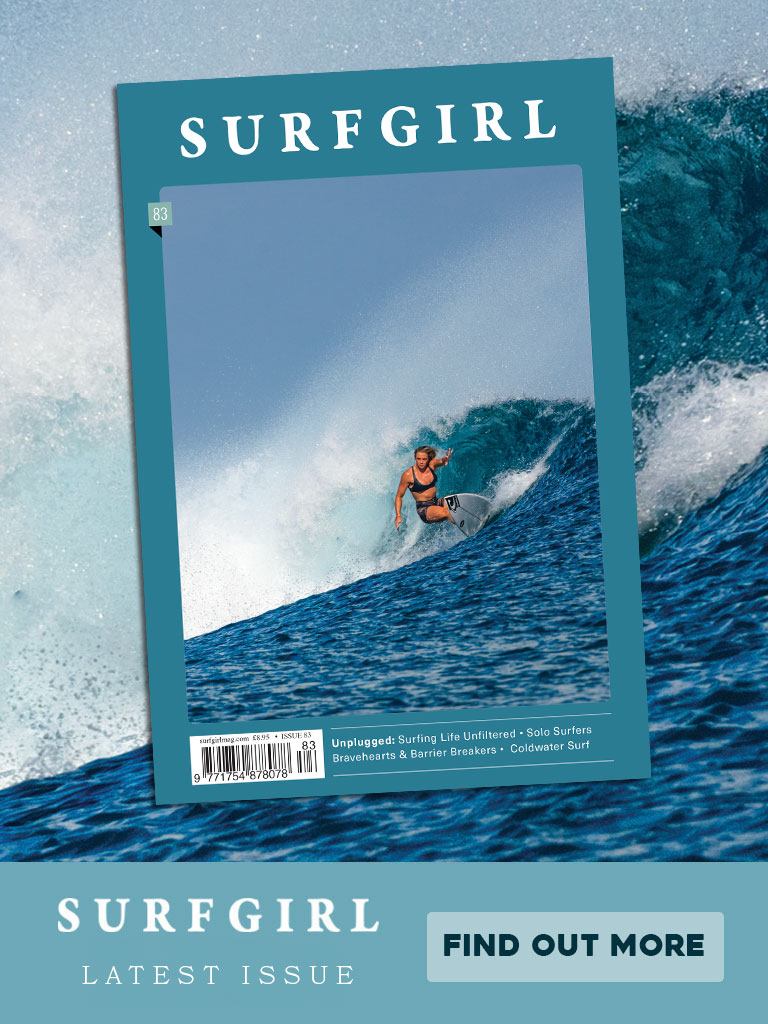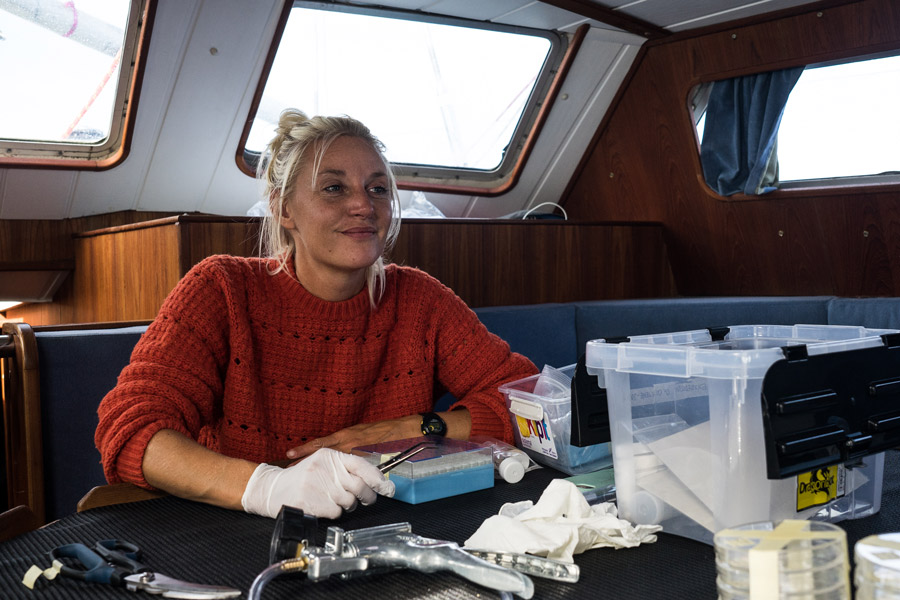
Photos Sophie Dingwall / eXXpedition
UK surfer Natalie Fox sailed from Plymouth to the Azores on eXXpedition, collecting data on micro plastics.
Natalie Fox is a surfer, yoga teacher and sustainability masters student and in October she joined eXXpedition. It was a crew of 14 women (out of 10,000 applicants) sailing from Plymouth, UK to Ponta Delgada, Azores with a mission to collect surface water samples and determine how much micro plastic pollution was present.

Natalie took part in the first leg of eXXpedition, and the boat will continue on. The eXXpedition will feature 300 women, 30 legs, cover 3800 nautical miles and will be voyaging around the world for the next two years to complete the study. Each new leg accumulating more information about the range and breadth of global micro plastic contamination, in conjunction with The University of Plymouth.
Here Nat explains her journey.
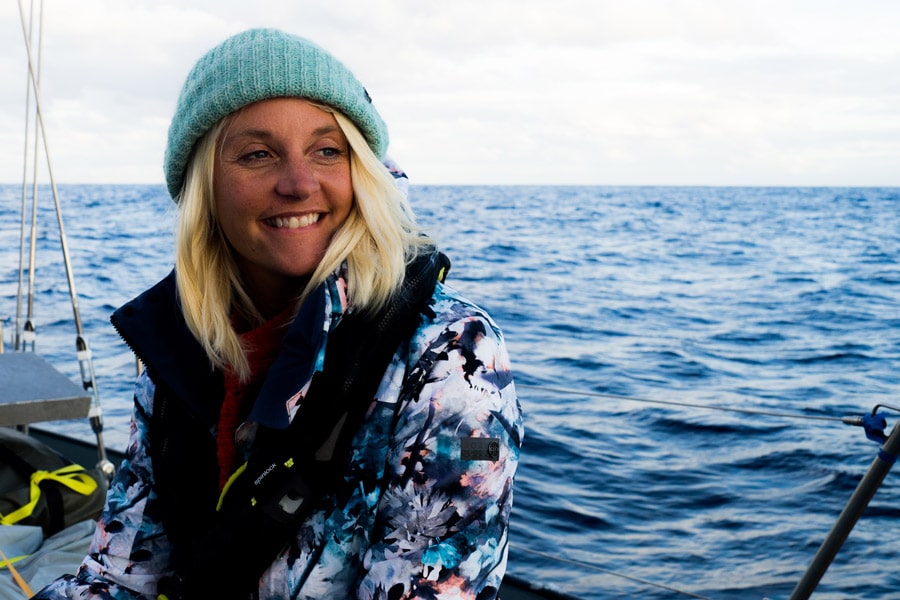
It’s hard to put into words a journey, which is so short in time but where so much happens and changes. I joined eXXpedition with two days sailing experience and having now sailed halfway across the Atlantic, I have so much admiration for the sea faring people, who live by the ocean currents and sail by the wind.
We were setting sail from Plymouth in late October and heading for the Azores – a mid Atlantic Archipelago belonging to Portugal – a fitting start and finish; as I started surfing in Cornwall and currently spend my summers teaching yoga in the Algarve. However, the week we were due to leave, Mother Nature decided to let us know who was boss and Hurricane Lorrenzo brought an incredible amount of energy in the exact, projected path of our vessel: the S.V Travel Edge. Despite this, we embarked on our mission, venturing into the tail end of the storm, and just to make things more difficult, a constant head wind that would plague us for the entirety of the trip.
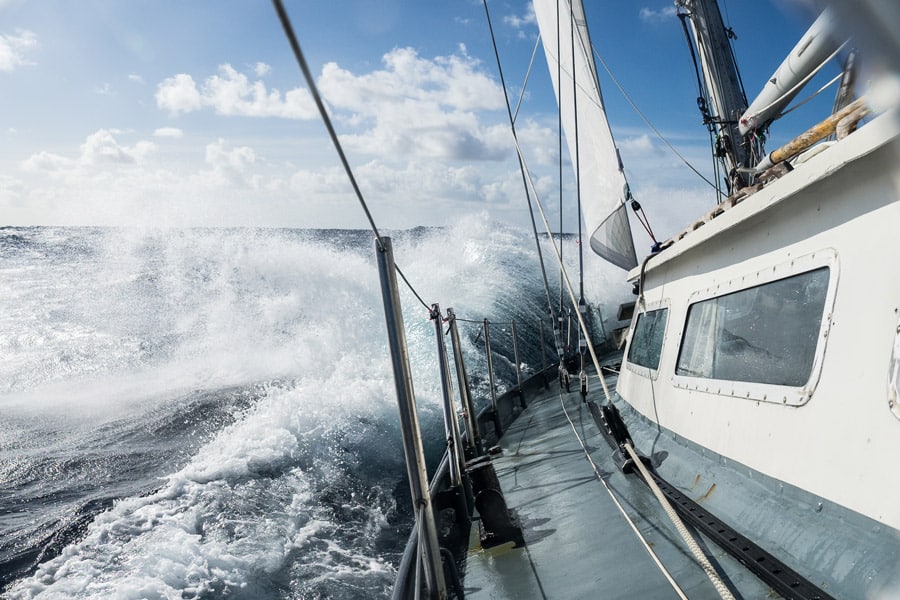

The next seven days became a blur of science, sailing and of course, food. Our daily routine revolved around a rotating watch schedule – four hours on and eight hours off for nights. Finally, the whole crew were back onto eating and keeping down solids, so much care was taken to produce the finest meal the galley could offer up once all the fresh fruit and veggies had gone. It was a dark day, when the final orange was eaten!
So what did I learn within all the chaos of navigating the storms of the Atlantic, spending 24-7 with people I had never met before and surfing open ocean swells far away from my beloved European coastline?
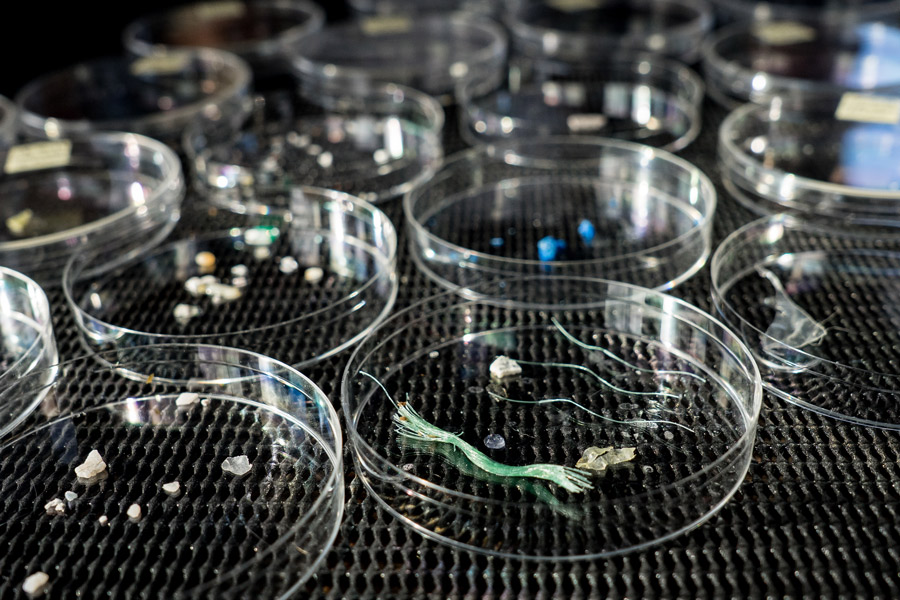
I learnt that I am stronger than I thought. Resiliency isn’t some you’re born with, it’s something you develop through putting yourself out of your comfort zone. Also resiliency is something we will need to call on as this issue gets bigger, because it’s not going away. We need all the strength we can muster, in order to keep looking at this problem from every angle possible and maintaining a positive intent that we can and will do our best to fix what we inherently created.
We found micro plastics in EVERYONE of our samples.
For me, this is devastating. I have heard the reports of course. But to be immersed in the expanse of the North Atlantic – the same deep ocean that produces the swells I rely on so much for joy and healing – experiencing the 360 degree vastness, floating on top of the metres of deepness and darkness; I actually get it. The ocean is colossal. Plastic is everywhere. And by breaking down into smaller parts, it is being distributed in our colossal ocean, EVERYWHERE.
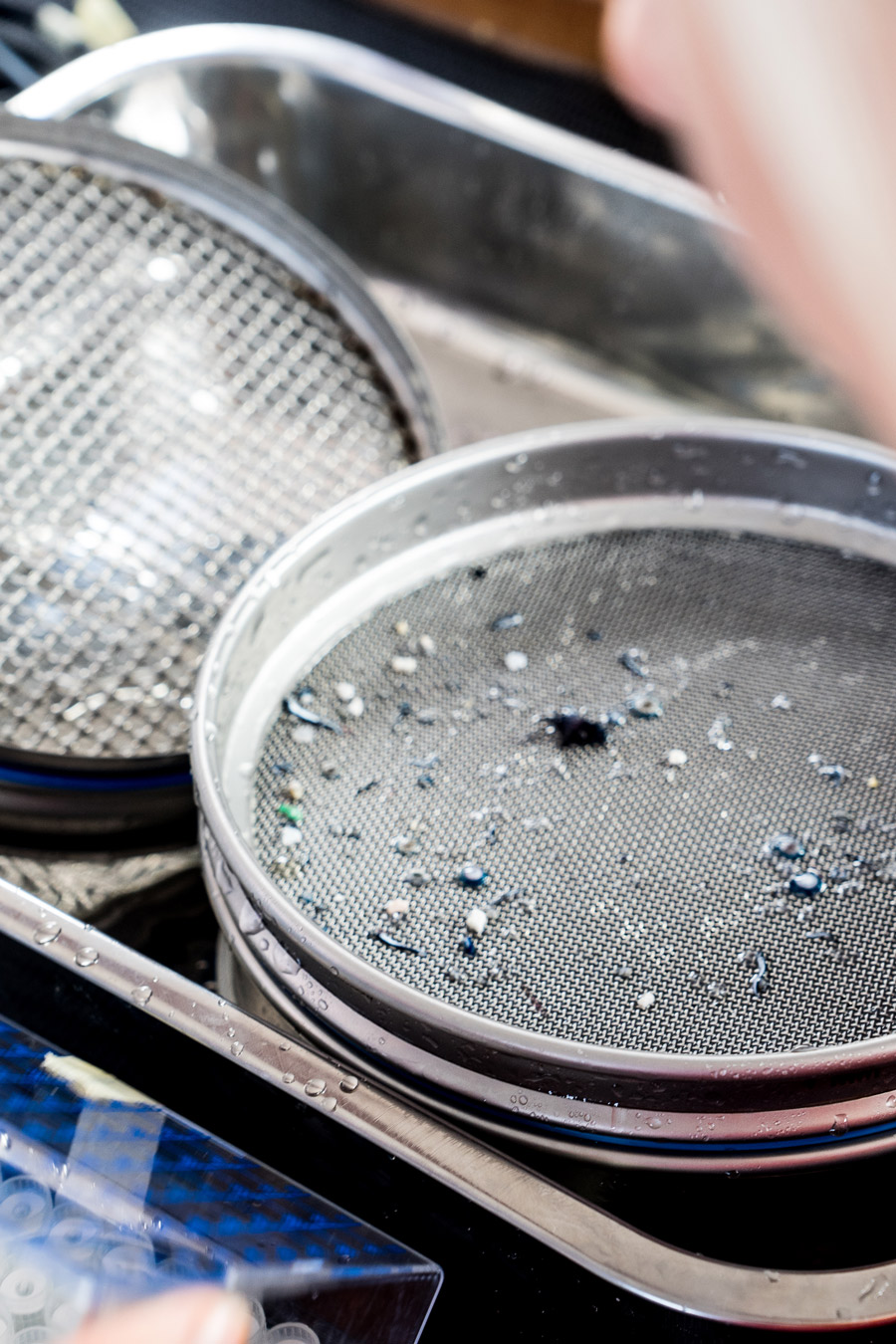
With our data, we will be able to tackle the anonymity of plastic – answering questions such as how long has it been there and where it came from. But do we really need more Scientific data to expose the culprits and justify clamping down on plastic production?
With a 2 year study aboard eXXpedition, are we not just wasting valuable time to change our broken systems and all the parts within that allow plastic to transform into marine pollution. How much plastic will have been produced, entered our waterways and found its way into our big blue by then?
I don’t have the answers I’m afraid. I only know that by embarking on this journey, by seeing the truth with my own eyes, by witnessing the horror in the eyes of my fellow crew members; that this will not go away. Our task is to take our stories and findings back from the sea and into our homes, families, communities – which is why my words will always land on the pages of Surf Girl and Carve.
And as a nomadic, van dwelling migratory surfer, the closest thing I have to a community is you. The surfing community. Plus, my oceanic roots were planted in Newquay, Cornwall. As a surfer, its the closest thing I have to home.
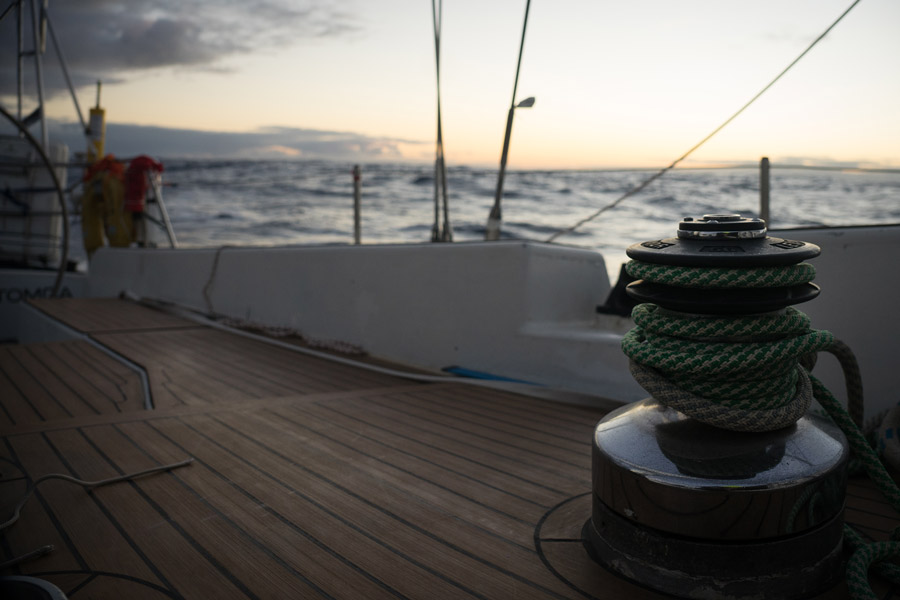
So I’m calling on you: Tap into the resiliency surfing (cold water especially) gifts you. Have the awkward conversations. Make the changes that prove difficult. Celebrate the small victories where you’ve made the switch from flawed design single use plastic to alternatives – or not at all! It only takes a couple of instances within the system to change, and the whole systems changes.
Let’s be that change.

More info: www.exxpedition.com
Natalie’s website: www.ecoyogasurf.com
Sign up to my mailing list and receive a copy of “All systems go: an introduction to systems thinking” inspired by the eXXpedition (Due Jan 2020)





